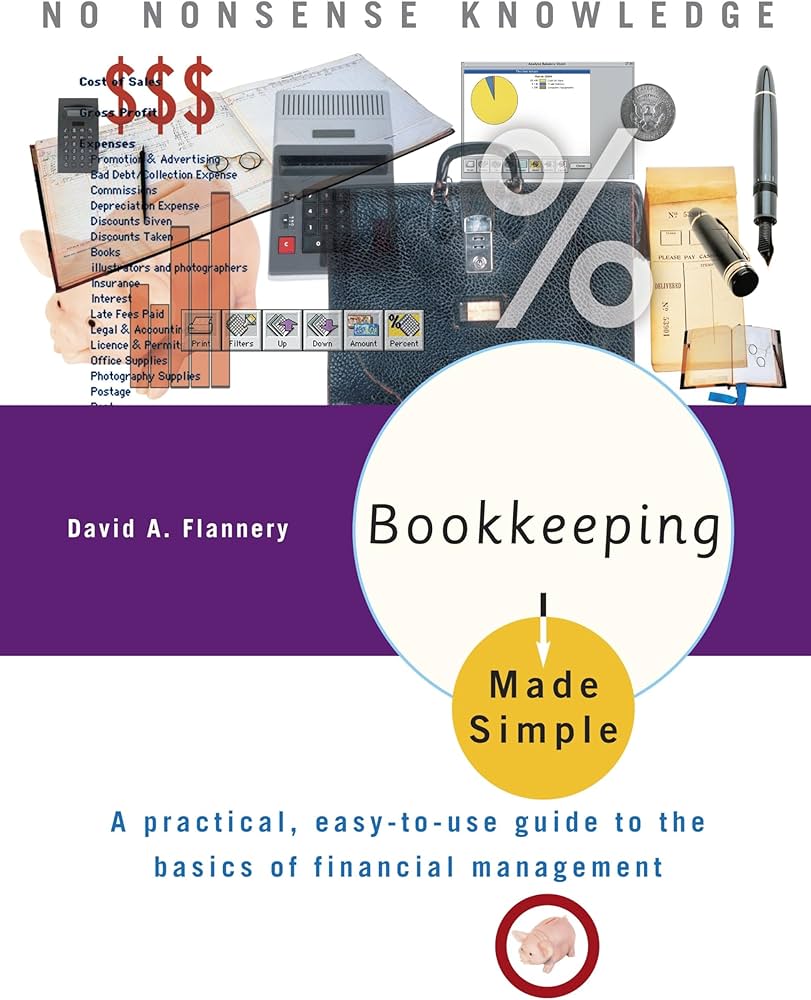Exploring the Key Duties of a Professional Bookkeeper in Money
The duty of a specialist bookkeeper is essential in the domain name of financing. They are tasked with preserving exact monetary records, taking care of accounts receivable and payable, and ensuring compliance with monetary guidelines. Furthermore, their duty expands to preparing economic declarations and reports. Each of these tasks adds to the financial health and wellness of a company. The subtleties of their work commonly go undetected, increasing concerns regarding the influence of their experience on wider financial techniques.
Keeping Accurate Financial Records
Keeping precise monetary records is an essential duty for professional accountants. This task calls for thorough focus to detail and a detailed understanding of financial principles. Accountants are in charge of recording all financial deals, making sure that information is taped continually and properly. They use numerous audit software application and tools to streamline the recording process, which enhances efficiency and minimizes the risk of errors.
Routine reconciliation of accounts is essential, permitting accountants to identify discrepancies and fix them without delay. By preserving organized and up-to-date documents, they offer important understandings into the financial health and wellness of an organization. This obligation additionally incorporates the preparation of economic declarations, which work as a significant source for management decision-making. Ultimately, the precise monetary records preserved by bookkeepers support compliance with regulative needs and foster depend on among stakeholders, thus adding to the total success of the organization.

Handling Accounts Payable and Receivable
Efficiently managing accounts payable and receivable is a crucial facet of a bookkeeper's function, ensuring that an organization's capital stays healthy. This responsibility entails tracking outward bound and incoming settlements, which permits prompt payment and collections from customers while additionally assuring that the organization satisfies its financial obligations to vendors and suppliers.
Bookkeepers must preserve precise documents of invoices, repayment terms, and due days, helping with effective communication with lenders and consumers. By keeping track of these accounts, they can determine inconsistencies or past due accounts, enabling positive steps to deal with problems prior to they intensify.
In addition, an accountant's role consists of integrating accounts to assure that all monetary purchases align with bank declarations and inner documents. This diligence not only improves monetary transparency yet also supports strategic financial planning, enabling the organization to assign sources effectively and keep a durable monetary setting.
Making Certain Compliance With Financial Laws
While guiding through the complicated landscape of monetary guidelines, a bookkeeper plays an important duty in making sure an organization complies with lawful standards and standards. This duty includes staying upgraded on adjustments in tax obligation legislations, conformity requirements, and industry-specific regulations. Bookkeeping Services Calgary. By diligently tracking economic transactions and maintaining accurate records, the bookkeeper helps prevent infractions that can result in penalties or legal concerns
Additionally, the accountant checks interior controls to protect versus scams and mismanagement. They implement treatments that promote transparency and accountability within the financial framework of the organization. Cooperation with auditors and regulatory bodies better solidifies compliance efforts, as accountants supply needed paperwork and support during reviews.
Ultimately, the commitment to compliance not just protects the organization but additionally check out here enhances its integrity with stakeholders, cultivating count on and stability in its monetary practices.
Readying Financial Statements and Reports
Preparing monetary statements and reports is a crucial job for bookkeepers, as it supplies stakeholders with a clear overview of a company's financial health and wellness. Best Bookkeeping Calgary. These records, which commonly consist of the equilibrium sheet, income statement, and money flow statement, sum up the monetary tasks and setting of the service over a specific duration. Bookkeepers thoroughly collect, document, and organize financial information to ensure accuracy and compliance with appropriate audit standards
The preparation process entails integrating accounts, verifying purchases, and adjusting access as needed. With this complete method, bookkeepers aid assure that financial statements reflect real state of the organization's finances. Additionally, prompt prep work of these reports is crucial for effective decision-making advice by monitoring, capitalists, and regulative bodies. By supplying specific and clear monetary documents, bookkeepers play an essential role in keeping transparency and trust within the economic ecological community of the company.
Giving Financial Insights and Analysis
Accountants examine economic data to supply beneficial insights that inform critical decision-making within an organization. By thoroughly assessing patterns in revenue, expenditures, and capital, they assist identify locations for renovation and emphasize prospective dangers. Bookkeeping Services Calgary. These understandings allow management to allot resources better and change company techniques appropriately

Furthermore, by leveraging economic software application and logical tools, bookkeepers can present information in a comprehensible and clear style, making it simpler for decision-makers to understand intricate economic issues. Eventually, the understandings derived from an accountant's evaluation empower companies to make enlightened choices that boost profitability and drive growth.
Frequently Asked Inquiries
What Software Devices Do Professional Accountants Normally Make Use Of?
Specialist accountants typically make use of software application devices such as copyright, Xero, Sage, and FreshBooks. These applications enhance financial monitoring, promote exact record-keeping, and boost reporting capabilities, enabling efficient handling of financial purchases and information evaluation.
Exactly how Does an Accountant Differ From an Accountant?
A bookkeeper primarily handles day-to-day financial deals and record-keeping, while an accounting professional assesses economic data, prepares statements, and offers calculated suggestions. Their duties complement each other however concentrate on distinct aspects of economic administration.

What Qualifications Are Needed to Become a Bookkeeper?
To end up being an accountant, people generally require a senior high school diploma, effectiveness in accountancy software program, and expertise of fundamental accounting principles. Some may pursue certifications or associate degrees to enhance their credentials and work leads.
How Often Should Financial Records Be Upgraded?
Financial documents must be upgraded frequently, preferably on a day-to-day or weekly basis, to guarantee precision and timeliness. This method enables for reliable tracking of monetary activities and supports informed decision-making within the company.
Can an Accountant Assist With Tax Preparation?
Yes, an accountant can this contact form help with tax obligation preparation by organizing financial records, ensuring accurate documentation, and providing required reports. Their expertise helps simplify the procedure, making it easier for tax experts to complete returns efficiently.
They are charged with keeping exact financial documents, handling accounts receivable and payable, and making sure compliance with economic regulations. Preparing monetary statements and reports is a vital task for bookkeepers, as it provides stakeholders with a clear introduction of a company's monetary wellness. With this thorough strategy, bookkeepers assist ensure that financial declarations mirror the true state of the organization's funds. By leveraging economic software application and logical devices, bookkeepers can present data in a clear and comprehensible style, making it easier for decision-makers to realize complex financial concerns. An accountant mainly manages everyday economic deals and record-keeping, while an accountant examines monetary information, prepares declarations, and uses tactical suggestions.